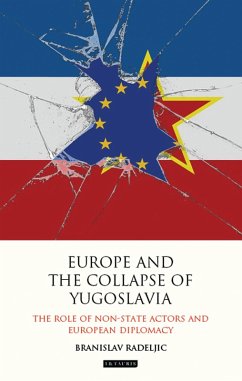In 1992 Yugoslavia finally succumbed to civil war, collapsing under the pressure of its inherent ethnic tensions. Existing accounts of Yugoslavia s dissolution, however, pay little regard to the troubled relationship between the Yugoslav Federation and the European Community (EC) prior to the crisis in the early 1990s, and the instability this created. Here, Branislav Radeljic offers an empirical analysis of the EC s relations with Yugoslavia from the late sixties, when Yugoslavia was under the presidency of Josep Broz Tito, through to the collapse of the Yugoslav federation in 1992, after the rise of Slobodan Milo evi? and the beginning of the Yugoslav Wars. Radeljic explores the economic, political and social elements of these discords, and also places emphasis on the role of Slovenes, Croats and other diasporas focusing on their capacity to affect policy-making at a Europe-wide level. Radeljic argues convincingly that a lack of direction and inadequate political mechanisms within the EC enabled these non-state actors to take centre-stage, and shows how EC paralysis precipitated a bloody conflict in the Balkan region."









